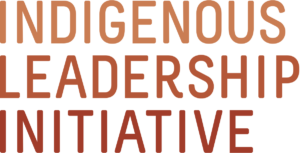First Nations women are at the forefront of conservation and stewardship. This fellowship aims to support leaders by expanding their professional experiences within the conservation movement.

Fellowship for Women
The Indigenous Leadership Initiative (ILI) and Wildlife Conservation Society Canada (WCS Canada) have come together to support women leaders by launching the First Nations Women Transforming Conservation Fellowship.
The fellowship is designed to empower First Nations women to envision and build vibrant, resilient communities that reflect who we are—our ways of knowing, doing, and being. It will offer community and mentorship, and it will:
Draw on the expertise of both ILI and WCS Canada, including advocacy, policy, and western scientific research.
Be shaped around participants’ interests and strengths.
Explore a range of concepts, from Indigenous-led conservation as an expression of Nationhood to the role of western and Indigenous science in conservation policy.
Provide opportunities for fellows to learn more about public policy, government relations, research design, communications, land use planning, and other elements of advancing Indigenous-led conservation and stewardship.
Offer experiential learning, from creating a video with the Land Needs Guardians’ storytellers project to participating in hide camp or on-the-land language programs.
Caring for the Land
Indigenous women carry the knowledge and traditions that are central to our relationships with our lands and waters, safeguarding them for our people and future generations. Their leadership in renewing, mobilizing, and sharing Indigenous knowledge is pivotal to sustaining healthy lands and waters.
Colonialism and paternalistic policies have restricted the spaces where women belong. This has led to conservation strategies that often overlook the leadership and knowledge of Indigenous women. The resilience of our lands and cultures is weakened as a result.
Yet Indigenous women still step in as leaders in conservation and stewardship–both within and beyond our Nations. To continue to flourish, Indigenous women leaders need spaces where they can build relationships, find mentorship, and experience learning opportunities that align with their values.
Meet the Fellows
Taylor Galvin Ozaawi Mashkode-Bizhiki
Taylor Galvin Ozaawi Mashkode-Bizhiki (Brown Buffalo) is a proud Anishinaabe woman from Brokenhead Ojibway Nation and a member of the Sturgeon Clan. She is a graduate student at the University of Manitoba, where her Master’s thesis explores Lake Sturgeon conservation through Indigenous science, storytelling, and community-based knowledge.
Taylor serves as the Brokenhead Wetland Ecological Reserve Chair and is the community coordinator for an Indigenous-led environmental monitoring project in Tataskweyak Cree Nation. She is a lifelong student of many Elders and Knowledge Keepers across Manitoba. She walks in both worlds, using Western and Indigenous sciences to guide her work in land guardianship, ceremony, and environmental protection.
Taylor’s advocacy centers Indigenous youth, especially young women, whom she mentors through teachings on plants, medicines, and ceremony. Taylor has shared Indigenous knowledge internationally and attributes every opportunity to the strength of her people, the power of ceremony, and the resilience of community teachings.
Mary-Jo Michell
Mary-Jo is nłeʔkepmx (Nlaka’pamux) from ƛ̓əq̓ƛ̓aqtn. (Kanaka Bar). She is a proud mother of two, an elected Councillor, and the Lands and Culture Coordinator with Kanaka Bar Indian Band.
She is passionate about conservation, restoration, and preservation of language, culture, lands and waters because of the teachings she has received from her grandmothers and Nation Elders growing up. She was raised to take only what you need, share what you have, remember what you do to the land, you do to yourself, and to respect and honor the interconnectedness of all life.
We all have a responsibility to take care of our tmíxʷ (earth/land). All lands and waters are sacred, and we are all connected, we are one.
These teachings have shaped Mary-Jo’s worldview as a human being, a mother, a leader, and her role as the Lands and Culture Coordinator for ƛ̓əq̓ƛ̓aqtnmx (Kanaka Bar Band). The tmíxʷ (earth/land) is not just a resource; it is our skiʔkíyeʔ (our ancestor), our relative. We are all a part of this tmíxʷ (earth/land).
The Aunties Circle
Indigenous Peoples have always turned to trusted aunties to guide us. The fellowship draws on this same principle. We have convened an Aunties Circle of mostly Indigenous women with a breadth of experience in conservation and stewardship.
These Aunties have been recognized as leaders within their communities and Nations, have a passion for our relationship and responsibility to lands and waters, and are committed to uplifting other women in their successes.
The Aunties will meet regularly as a group to guide the initiative, and they will form collaborative relationships with the fellows to provide regular mentoring.
The Legacy of Dr.Cheryl-Lesley Chetkiewicz
The fellowship celebrates the legacy of Dr. Cheryl-Lesley Chetkiewicz, WCS Canada’s Director of Indigenous Communities and Conservation.
Throughout her career, Cheryl worked to foster greater collaboration between conservation scientists and Indigenous communities. She was a biologist who practiced science with rigour and integrity, and an advocate who uplifted Indigenous leaders and ways of knowing and doing.
Cheryl dreamed of creating more opportunities to support Indigenous women in conservation. Her insight, leadership, and empathy have served as a guide in the design of this initiative.
We are thrilled to launch this fellowship, and to sustain it beyond the pilot year, we welcome your support. Your donation will help empower Indigenous women leaders in conservation for years to come.












